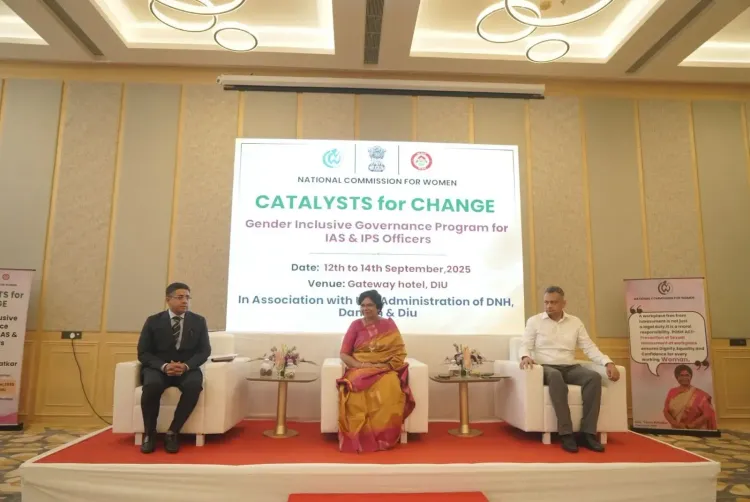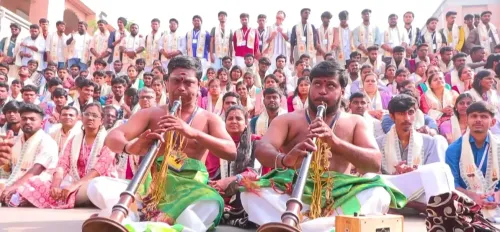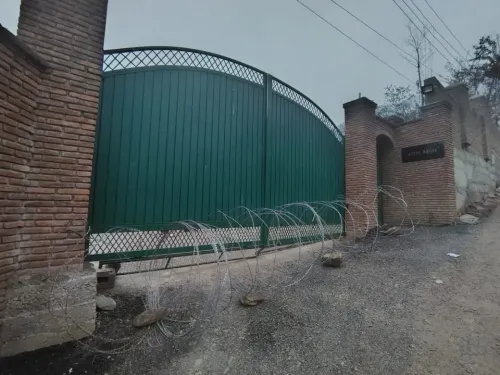What is the ‘Catalysts for Change’ program launched by NCW in Diu?

Synopsis
Key Takeaways
- Emphasizing women's empowerment through innovative governance.
- Shifting the focus from development of women to development led by women.
- Integrating women's perspectives into policymaking for positive change.
- Utilizing AI to enhance administrative efficiency and safety for women.
- Engaging grassroots-level innovations to foster change.
Diu, Sep 12 (NationPress) The National Commission for Women (NCW) officially commenced its three-day capacity-building initiative titled “Catalysts for Change: Gender Inclusive Governance” in Diu.
Senior IAS and IPS officials representing 20 states are taking part in this program, which is designed to provide administrators with innovative insights and strategies aimed at promoting women’s empowerment.
In her opening remarks, NCW Chairperson Vijaya Rahatkar characterized the program as “not merely an event, but a commitment.”
She encouraged the officers to view themselves as “genuine changemakers” who can influence the lives of millions of women.
“When a daughter can freely venture out at midnight, when women are treated with respect in their workplaces, and when victims are granted swift justice — that will be a testament to your awareness and responsiveness,” she stated.
Calling for a paradigm shift, she underscored the importance of progressing from “development of women” to “development led by women.”
The Chairperson reiterated that a prosperous India is only achievable when it becomes a safe and equitable nation. She noted that this program is essential because administrative and law enforcement personnel play a pivotal role in ensuring the safety of women, enforcing laws, and executing developmental initiatives.
After previous sessions in Thiruvananthapuram and Goa, this third installment in Diu continues the mission of fostering a society founded on safety and equal opportunities.
The opening day included various sessions. NCW Member Secretary Sudeep Jain addressed “Gender Equality and Governance,” emphasizing how the inclusion of women’s perspectives in policymaking can catalyze significant change.
Retired IPS officer Dr. P.M. Nair led a session on crisis management and inter-agency collaboration, while Raipur District Magistrate Gaurav Kumar shared insights in “Being a Catalyst of Change,” highlighting the need for innovation and empathy at the grassroots.
Experts also deliberated on the role of Artificial Intelligence in improving administrative efficiency, enhancing women’s safety, and streamlining grievance redressal mechanisms.
In the evening, attendees participated in a cultural and educational excursion around Diu, visiting an education center, Diu Fort, the INS Khukri ship, Ganeshwar Mahadev Temple, and the INS Khukri Memorial. This visit, which combined history, culture, and maritime heritage, culminated in a cultural program at the memorial site.
This three-day program, concluding on September 14, will cover topics such as women’s rights, victim compensation and rehabilitation, crisis management, and effective enforcement of laws like the POSH Act, 2013 and the Domestic Violence Act.
Workshops will be led by retired judges, senior civil servants, IPS officers, and policy experts, alongside group activities and the development of implementation plans.










